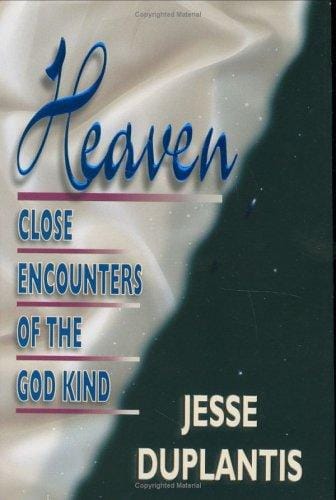Exploring the Concept of Heaven: History, Beliefs, and Reflections
A concise look at how different religions, cultures, and modern thinkers define Heaven and why the idea of an afterlife paradise continues to shape human hope.

Heaven has captivated human imagination for millennia, appearing in sacred texts, art, music, and everyday conversation. Whether depicted as a celestial city of light, a tranquil garden, or a state of perfect union with the divine, the promise of paradise influences how billions of people view life, death, and morality. This article explores the rich tapestry of ideas about Heaven, tracing its origins, interpretations across religions, and its enduring psychological and cultural impact.
What Does “Heaven” Mean?
The English word “Heaven” comes from Old English heofon, originally signifying the sky or firmament. Over centuries, the term evolved to describe a metaphysical realm where deities dwell or souls enjoy eternal bliss. Despite linguistic differences, most cultures share core themes: transcendence, freedom from suffering, reunion with loved ones, and closeness to ultimate truth or God. Heaven is thus both a place and a state of existence beyond ordinary physical limits.
Heaven in Major World Religions
While each tradition paints its own picture of paradise, common threads—justice, peace, and divine presence—run through them.
Christianity
In Christianity, Heaven is the dwelling place of God, angels, and the redeemed. The New Testament describes streets of gold, crystal seas, and a community where “death shall be no more.” Entry is linked to faith in Christ and righteous living, though denominations vary on specifics like purgatory, judgment, and bodily resurrection. Modern theologians emphasize Heaven as complete communion with God rather than mere physical splendor.
Islam
Islamic scripture refers to Heaven as Jannah, a multi-layered garden of rivers, fruit, and companionship. Access follows the Day of Judgment, when deeds are weighed. Believers anticipate reunion with family, spiritual fulfillment, and, most importantly, the vision of Allah. The Qur’an’s vivid imagery serves to motivate ethical behavior and trust in divine justice.
Hinduism
Hindu cosmology includes several heavenly realms such as Svarga, ruled by Indra. Yet these realms are not permanent; souls enjoy reward before reincarnation resumes. Ultimate liberation, moksha, transcends all heavens by dissolving the cycle of birth and death, merging the self with Brahman. Thus, paradise is both a temporary abode and an incentive toward higher spiritual goals.
Buddhism
Buddhism also speaks of celestial realms reachable through karma, meditation, or devotion, like Amitābha’s Pure Land. However, even heavenly existence is impermanent. The final aim is Nirvana, a state beyond all realms, free from craving and suffering. Heaven, therefore, functions as a compassionate bridge for practitioners on the path to enlightenment.
Historical Evolution of the Idea of Paradise
Early hunter-gatherer societies honored ancestral spirits in the sky, associating cosmic order with moral order. Ancient Mesopotamians imagined a distant realm where gods ruled but common souls wandered bleak plains. Zoroastrianism introduced a clear moral dichotomy—Heaven for the righteous, hell for the wicked—that deeply influenced Judaism, Christianity, and Islam. During the Middle Ages, elaborate artworks and pilgrim tales translated abstract theology into vivid mental landscapes, reinforcing ecclesiastical authority while comforting the laity.
Scientific and Philosophical Perspectives
Enlightenment thinkers challenged literal notions of Heaven, asking where a physical paradise could reside in an expanding universe. Contemporary cosmology finds no empirical evidence for a celestial city, yet many scientists remain personally spiritual, viewing Heaven metaphorically as the survival of information in memories, genetics, or quantum possibilities. Philosophers like Kant argued that belief in a just afterlife supports moral rationality, even if impossible to prove.
Heaven as a Psychological Anchor
Psychologists observe that hope for Heaven reduces death anxiety and can promote resilience during trauma. Studies show that patients with strong afterlife beliefs tolerate pain better and recover faster. Critics warn, however, that overemphasis on future reward may discourage solving present injustices. Balanced teachings often stress that preparing for Heaven means practicing compassion here and now.
Modern Pop Culture and Heaven
Films, novels, and streaming series continue to reinvent Heaven—from whimsical cloud cities in animated classics to morally complex digital afterlives in science-fiction comedies. These portrayals reflect contemporary questions about identity, technology, and ethical accountability. The trend toward interactive or customizable heavens reveals society’s desire for agency beyond death, mirroring a broader shift toward personalized spirituality.
How the Concept of Heaven Shapes Ethical Behavior
Anthropologists note that communities with strong belief in moral afterlife systems often display higher levels of cooperation and charitable giving. The prospect of divine judgment encourages honesty even when human oversight is absent. Yet exclusivist visions of Heaven can foster division. Interfaith dialogue that highlights shared values—love, justice, peace—helps harness the ethical strengths of afterlife belief while minimizing conflict.
Conclusion: Personal Reflections on Heaven
Whether imagined as gilded city, boundless garden, or infinite consciousness, Heaven remains a powerful mirror of human aspiration. It critiques earthly shortcomings by offering a vision where love triumphs and suffering ends. You may approach the idea literally, symbolically, or skeptically, but engaging with it invites deeper questions about meaning, purpose, and the legacy you leave behind. In contemplating Heaven, we often discover what we value most about life on Earth—and how we might begin living a bit of paradise here and now.



